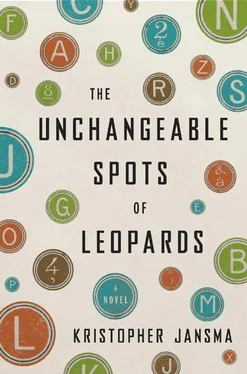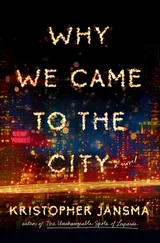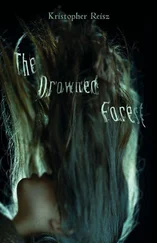“A few final thoughts, then, on this, our last day. What is New Journalism? Not quite fiction and not quite reality. We began the semester by looking at Gay Talese’s piece ‘Frank Sinatra Has a Cold.’ Talese followed Sinatra around for three months, trying to get an interview and ended up talking to every person around Sinatra instead. Esquire shelled out five grand to cover his costs, making it one of the most expensive articles ever written at the time. And in the end, he never spoke to Sinatra, not once. But Talese constructed an interview, anyway: he wrote what he knew Sinatra would have said. Now, compare this with what we’ve just read: the work of Stephen Glass, rogue fraud reporter of the New Republic , who fabricated not just interviews but facts, and entire people, and the corporation of Jukt Micronics — even inventing the subject of his piece: a young hacker who violated Jukt’s servers, and then conned Jukt into paying him a fortune to protect them against future attacks. Is there a difference? Where is the line? James Frey. Jayson Blair. Kaavya Viswanathan. Blair Hornstine. The countless others out there who have surely gone undiscovered. Ours is a new generation of plagiarists. Armed with Wikipedia and Google, we can manufacture our own truths. What else should we expect in an age when even the real reporters, off in the Middle East, sent back only government-approved messages? Move over Jennings and Murrow. No need for the cold, uninterpreted facts. Make way for Stewart and Colbert! In our era, truthiness is in the dictionary, and Dan Rather got fired for not authenticating the Killian documents. And in his wake we’ve found, twisting and shouting, the Bill O’Reillys and the Chris Matthewses, spinning us sugar-sweet falsehoods. Plagiarism, class, is the new American art form.”
Just a brief pause for poignancy, and then—“Have a great summer. Leave your final papers by the door.”
They just eat this shit up. With their little silver spoons, they do. Every year a couple of kids even applaud before rushing out the door. A little irreverence, a little old-fashioned fire and brimstone, and you’ve got them. Back in the sixties, I might have been one of those professors who got everyone to join a cult or march on Washington in protest, but as fun as that may be, it’s not my MO. After I charge their brains with my own brand of skeptical electricity, I unleash them — the New Cynics — upon a world that is slowly and happily critiquing itself to death.
The truth is that I actually have the greatest respect for those fantastic liars. Someday I’d like to teach a class entirely about them. Late Great American Fakes. My humble thesis will be that America no longer desires the truth, only the reasonable facsimile thereof. Like battered lovers, we’re willing to settle. Our sense of values still holds us to dismiss that which we know, outright, to be blatant lies, but we avoid the truth with equal intensity. We wish to remain in the gray interregnum of half belief, when at all possible.
But. How I came to Dubai. Yes. Well, that final day of class, after the students had all wandered away, I erased the board and brushed off the chalk dust. Then I threw away the stack of term papers waiting for me by the door, hit the lights, and headed out.
There, just in the doorway, I collided with Saiyid Ghazali, a particularly bright-eyed student of mine, who always sat in the first row, paying rapt attention to my lectures. Probably as a result of his upbringing, Saiyid was impossibly respectful and polite. Without fail he raised his hand before speaking, and he never spoke without making full eye contact. He never slouched in his chair. His notes were written in neat shorthand, and from what I could tell, as accurate as a court stenographer’s. He’d gotten a perfect score on every quiz, had never missed a single class, and his final paper, had I read it, would surely have been flawless and insightful.
“ Uhm … Saiyid. Good to see you.” I wondered if there was any way that through the door he’d seen me dumping the term papers.
“Professor Wallace,” he said, “I just wanted to tell you how much I enjoyed your class this semester.”
“I appreciate that,” I said. “I’m teaching Methods and Practices of Modern Journalism in the fall. It’s past registration, but if you come on the first day, I’d be happy to sign you in.”
He looked crestfallen. “I am afraid that I will not be able to accept your kind offer. My parents are transferring me to another university next semester.”
“Your parents are quite smart,” I said. “Truth is, this is not a very good university.”
This remark received a few stares from passing students and one elderly professor, who knew I was right. The older ones have been around long enough to remember when our city-funded university was still a pioneer of urban schooling, instead of a cesspool that hands out degrees like lollipops at a barber’s.
“Every year,” I explained, “our standards decline, our attrition rate rises, faculty retire and are replaced by adjuncts, and all the while our class sizes swell with ill-prepared students with no idea why they’re here. It’s no surprise. It’s America. Even our little public institution is a business. We soak the FAFSA money out of the freshmen, knowing they’ll drop out after a semester and return to their dead-end jobs. Then we funnel everything to the graduate school, where the students actually accomplish things that make the university look good — because most of them were properly educated elsewhere, and the cycle continues.”
“You are very wise,” Saiyid said, nodding. “I shall miss you greatly next semester.”
Saiyid was certainly smart enough to join the ranks at NYU or Columbia — more advanced practitioners of these same shell games — but I didn’t get to ask where he was bound, because just then, the chair of our department came marching down the hallway.
“Professor Wallace?” he called down the corridor as soon as he’d spotted me. I pretended not to have heard him — the chair and I had never officially met. To be honest, I wasn’t entirely sure how he knew my name. Then I realized that I was still lingering in the doorway of my assigned classroom, still wearing my checked-tweed blazer.
“Professor Wallace?” he called again. “May I have a word?”
My first impulse was to pretend to be another professor, or a student — just overdressed for the final day of school — but Saiyid, at that moment, pressed his hands together in gratitude and said loudly, “Excuse me. You must be busy. Have a wonderful summer, Professor Wallace.”
There was no way out. The chair continued his advance — staring directly at me. I looked at my watch. “Sorry, I’ve got to run to a meeting with another student,” I said.
“Oh, this should just take a second,” he said with a nasty little smile.
I was trapped in a badly tiled hallway with buzzing fluorescent lighting, about to face up to my crimes.
For the problem, you see, is that I am not really Professor Timothy Wallace.
You see? I told you. It’s much better told from the middle. That’s Storytelling 101—not that I’ve ever taught such a class, though I think you’ll agree I’d be quite good at it — no, but I’ve certainly taken my fair share of such classes. Before I became Professor Timothy Wallace, you see, I was something of a writer myself. Now, for the beginning part.
The real Timothy Wallace was a Scotsman I met at a writing course at the Gotham Workshop — Narrative for Fiction and Non was that professor’s clever little title. I’d have called it something more like, Stories: Straight and Slanted, but I digress. Tim was, then, an eager young journalism student who sat beside me at the great round workshop table where our works were weekly eviscerated. He wrote with great passion about the city’s crumbling public school system — about boys named Deshawn and girls named Jessina who kept their feet up to avoid the roaches in their classrooms and who sheltered their heads daily from falling chunks of plaster as they filed up and down institutional stairwells into hallways funneling five times the number of students anticipated by the architects of days past.
Читать дальше











